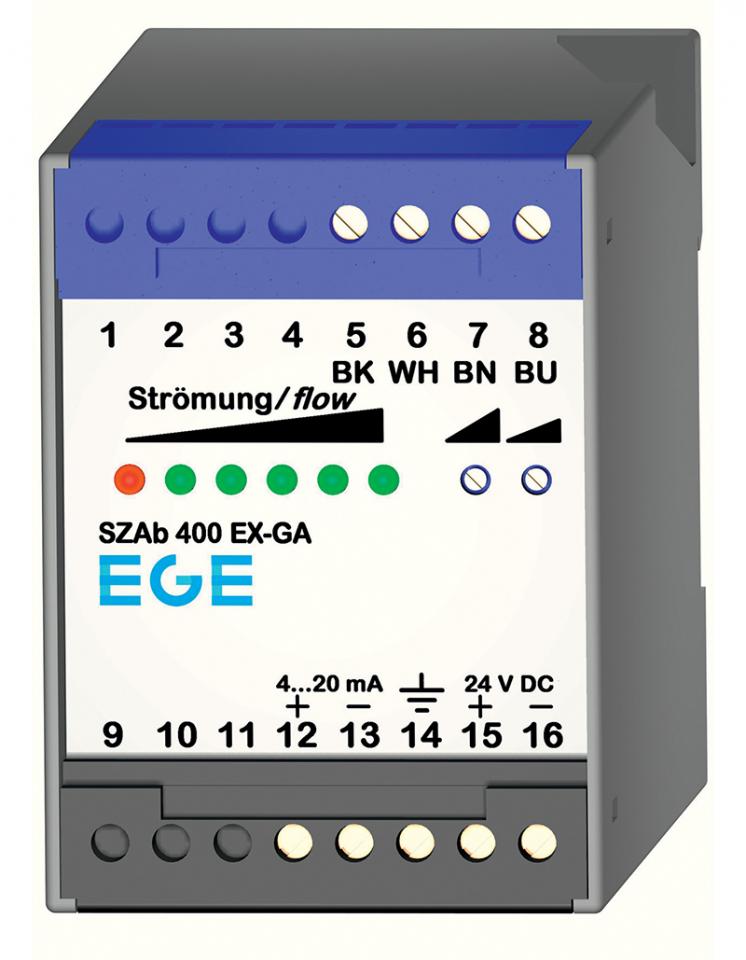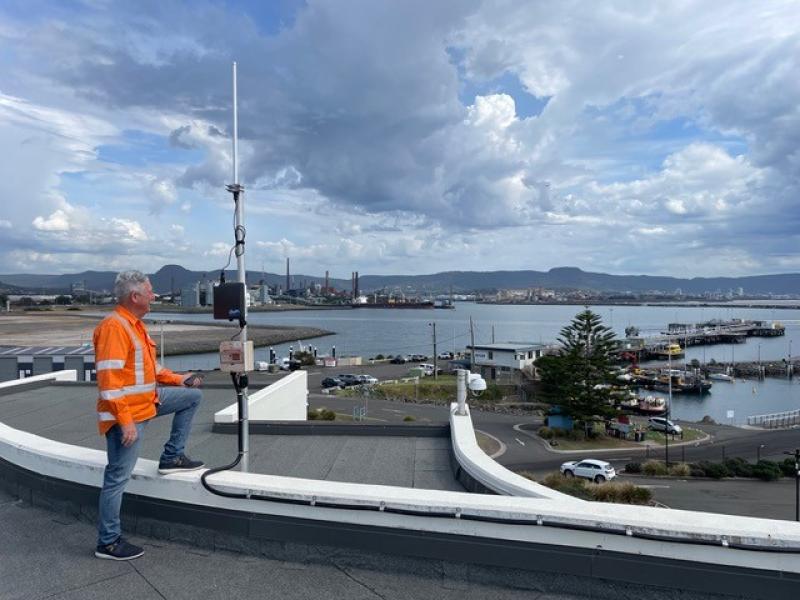SZAb evaluation devices from EGE for ATEX-certified ST and STS flow monitors are now available with an IECEx approval. These devices feed sensors installed in hazardous environments. They have an intrinsically safe circuit, galvanically isolated from the signal output and mains supply and are mounted in a control cabinet outside areas with potentially explosive atmospheres. For application-specific signaling, the evaluation devices are available with relay or analog 4...20 mA outputs. The relay output versions allow users to set switch-off delays of up to 25 seconds. Limit values for all models are simply set via a potentiometer on the front of the device. A multi-color LED line indicates the flow tendency. A red LED light indicates that the default limit value is not reached and the switching output is not active. A yellow LED indicates that the limit value has been reached and the output is switched. In addition, four green LEDs show by how much, relatively, the limit value is being exceeded. To avoid unnoticed defects, the evaluation devices feature cable breakage and short-circuit monitoring functions. The analog output version requires a 24 V DC power supply. Models with a relay output are also available for 230 V AC or 115 V AC operation.
IECEx-approved SZAb evaluation devices for flow monitors
Automation
Thursday, 06 October 2022






